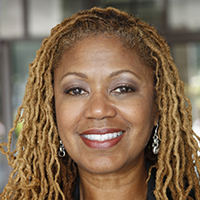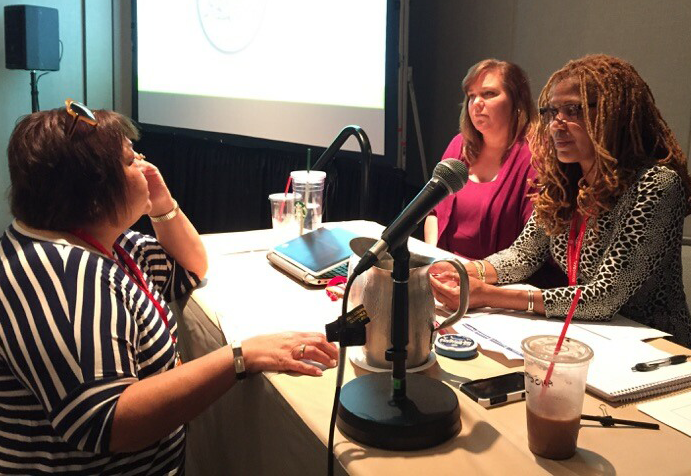 As the pendulum in U.S. schools continues to swing away from punitive discipline policies toward a more holistic approach to improving school climate, a host of presentations at the 23rd IIRP World Conference, Learning in the 21st Century: A Restorative Vision, will explore elements of this development.
As the pendulum in U.S. schools continues to swing away from punitive discipline policies toward a more holistic approach to improving school climate, a host of presentations at the 23rd IIRP World Conference, Learning in the 21st Century: A Restorative Vision, will explore elements of this development.
Featured speaker Pamela Randall-Garner, Ed.D., Senior Staff Advisor for the Collaborating Districts Initiative of CASEL (Collaborative for Academic Social and Emotional Learning), will focus on several important aspects of these efforts in her presentation, “Building Supportive School Communities,” including social and emotional learning (SEL) for students and staff, equity for students of diverse backgrounds and the role of restorative practices to support those efforts.
Dr. Randall-Garner says she is a “practitioner by trade,” who started out as a dance teacher and has been a principal, supervisor of high school principals and interim superintendent. Working at CASEL for the past six years, she is currently incorporating SEL into the core curriculum of schools in Chicago, Atlanta, Oakland, Nashville, Cleveland and other cities. More schools will soon be added in six more cities, with a focus on maintaining a social-emotional learning approach in school as well as by after-school providers.
CASEL defines SEL as the process through which children and adults learn to “manage emotions, set and achieve positive goals, feel and show empathy for others, establish and maintain positive relationships, and make responsible decisions.”
During a recent workshop, Dr. Randall-Garner cited CASEL co-founder Daniel Goleman, author of the book, Emotional Intelligence, who argued that understanding and managing our emotions can be as important as other kinds of intelligence. In the classroom, that can be promoted through academic lessons on relationship skills, including “how teachers build relationships with students, how students build relationships with each other, and how conflict and discipline are addressed.”
During the workshop, Dr. Randall-Garner also pointed out that administrators frequently ask her to help them focus on social and emotional learning for adults. If teachers and principals aren’t competent in these skills, how can they teach them to students? She noted that when she was a high school principal, she was aware that the tone she set as an administrator, and the quality of the relationships she had with her staff, supported teachers to create a healthier climate with children in the classroom, thereby benefitting the entire school.
Dr. Randall-Garner says a lot of her work with CASEL focuses on how different groups in large school districts, such as those working on social-emotional learning and others working on issues of equity for all students, can work together to support each other and avoid duplicating efforts.
“The different departments are often humming along doing great work, but they’re disconnected. We tap into the districts and say, ‘What are you doing to align this for students and for teachers?’”
Washoe County schools, including those in the city of Reno, Nevada, has been particularly successful in creating effective policy to tackle inequity in the district head on, says Dr. Randall-Garner. New hires go through an extensive series of trainings about why equity is important.
Says Dr. Randall-Garner, “All staff are well-equipped with strategies to ensure schools are employing welcoming practices to every child and every adult.”
 Pamela Randall Garner, right, speaking with a teacher
Pamela Randall Garner, right, speaking with a teacher
She adds, “A lot of talk in both the SEL and equity camps is around restorative practices. The question is how to address discipline disparities and address inequities that are pushing some kids out of school. CASEL endorses restorative practices as a viable strategy for helping to embed high quality social-emotional learning in the school and the classroom.”
Sacramento Unified School District, for instance, has trained student leaders in restorative practices to resolve issues with other students who have committed minor infractions in school. In some Chicago Public Schools, which adopted a policy to ban out-of-school suspensions for the youngest students, principals, teachers, staff and parents have all been trained in restorative practices.
At the IIRP conference, Dr. Randall-Garner says she plans to share with participants helpful tools and strategies. She also wants to help them think about how they teach social-emotional learning by looking at their practice through the lens of equity.
“I don’t ever go into a presentation thinking I’m the know-all be-all,” laughs Dr. Randall-Garner. “I plan to engage the participants so they can share what they’re doing that’s working, too.”
Learn more about Dr. Randall-Garner’s session, Building Supportive School Communities: The Impact of Social/Emotional Learning and Equity and register for the conference.
